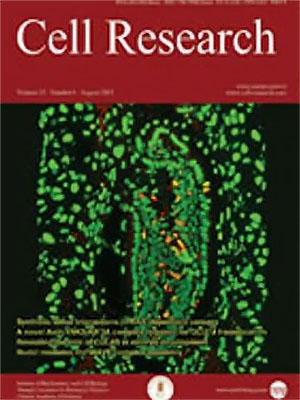
Volume 14, No 3, Jun 2004
ISSN: 1001-0602
EISSN: 1748-7838 2018
impact factor 17.848*
(Clarivate Analytics, 2019)
Volume 14 Issue 3, June 2004: 188-196
ORIGINAL ARTICLES
Induction of antiproliferative effect by diosgenin through activation of p53, release of apoptosis-inducing factor (AIF) and modulation of caspase-3 activity in different human cancer cells
Cecile CoRBIERE1, Bertrand LIAGRE1, Faraj TERRO2, Jean-Louis BENEYTOUT1
1Laboratoire de Biochimie, UPRES EA 1085, Faculté de Pharmacie, 2 rue du Docteur Marcland, 87025 Limoges Cedex, France.
2Service d'Histologie et Biologie Cellulaire, Faculté de Médecine, 2 rue du Docteur Marcland, 87025 Limoges Cedex, France.
Correspondence: Bertrand Liagre(bertrand.liagre@unilim.fr )
Previously, we demonstrated that a plant steroid, diosgenin, altered cell cycle distribution and induced apoptosis in the human osteosarcoma 1547 cell line. The objective of this study was to investigate if the antiproliferative effect of diosgenin was similar for different human cancer cell lines such as laryngocarcinoma HEp-2 and melanoma M4Beu cells. Moreover, this work essentially focused on the mitochondrial pathway. We found that diosgenin had an important and similar antiproliferative effect on different types of cancer cells. In addition, our new results show that diosgenin-induced apoptosis is caspase-3 dependent with a fall of mitochondrial membrane potential, nuclear localization of AIF and poly (ADP-ribose) polymerase cleavage. Diosgenin treatment also induces p53 activation and cell cycle arrest in the different cell lines studied.
FULL TEXT | PDF
Browse 2076


